Published Jun 15, 2023
Star Trek's Unlikely Fathers: Data and Odo
Our two figures came to discover, through trial and error, that fatherhood was a constant evolution.
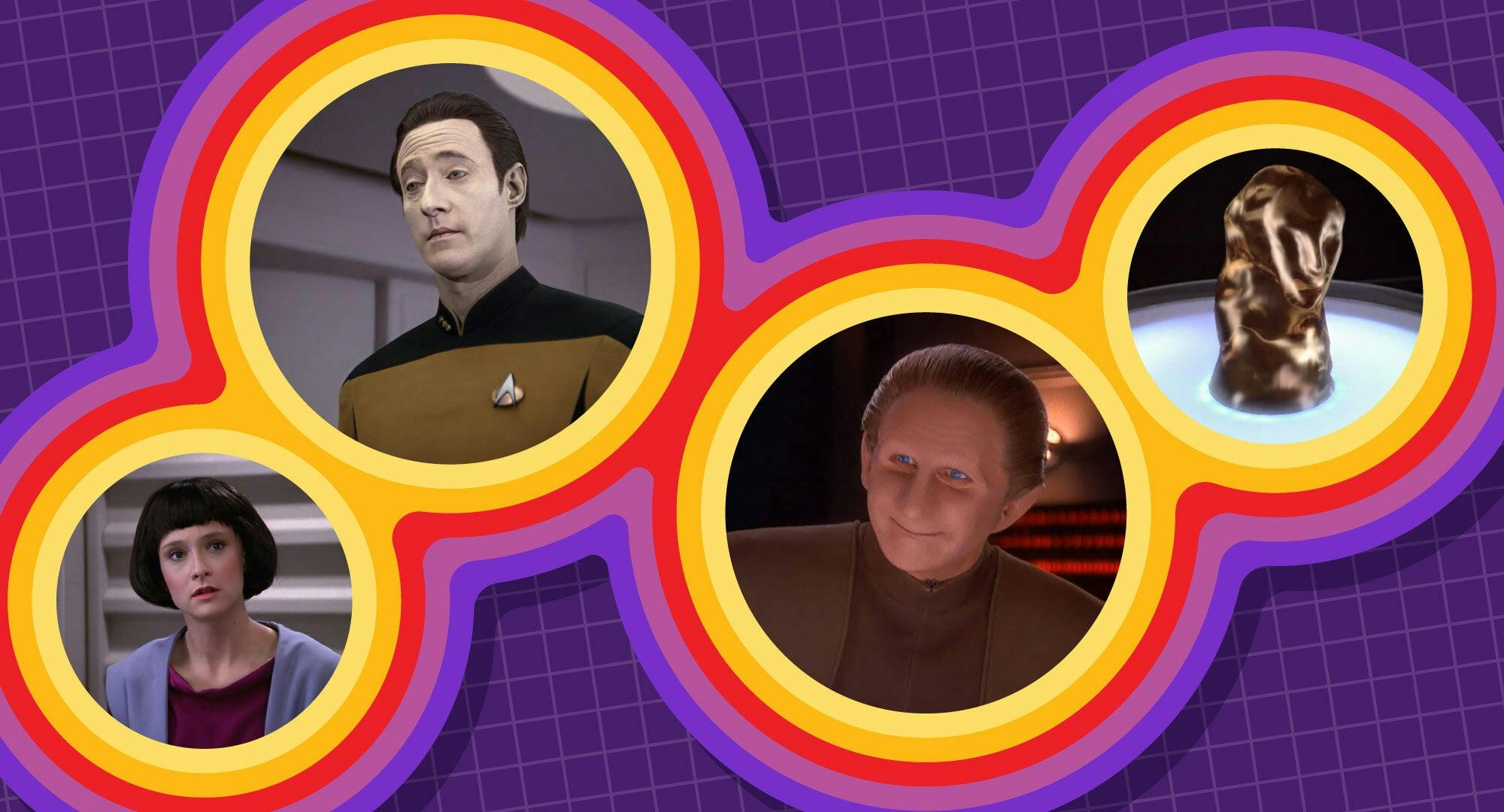
StarTrek.com
Fatherhood is not a step one should take lightly. For two of Star Trek’s least likely fathers, fatherhood began as clear-eyed choices, which would reveal to them truths about themselves and the world in which they walked.
For Data, in the Star Trek: The Next Generation episode “The Offspring,” his daughter started out as an experiment driven by a visit to a cybernetics conference. And for Odo, in the Star Trek: Deep Space Nine episode “The Begotten,” his adopted child was a chance-find brought to him by his main foil. Both knew almost immediately that what he was undertaking was not something done lightly, and yet, like all new fathers, neither had any idea what they were actually in for.
It is often said that being a parent is like having a piece of your heart walking around outside your body. Your heart (your child) is exposed and vulnerable, and every instinct inside you screams to protect it. You cannot let this piece of you come to harm because anything that hurts it hurts you. But you understand that you cannot protect it forever, and sooner than you wish, your child will have to learn to cope with the world and all its dangers on their own.

StarTrek.com
Data does this in the most logical way he knows, which is the only way he knows to do anything. He exposes Lal to as much of the world as he can as quickly as he feels she will be able to understand. He soon realizes that he cannot teach her everything she needs to know, becoming so overwhelmed by her constant quest for learning — “Why is the sky black?” — that he shuts her off for the night. (Human children, alas, come with no such switch, but that’s why science invented tablets and Cocomelon.) He decides, in that moment that, while Lal can learn from him, it is better than she learn on her own as other children do — in a social setting. He pushes his baby bird out of the nest, and in doing so, he learns that early difficult lesson of fatherhood — making friends for yourself may be hard, but making friends for your child is impossible. All you can do is step back, watch them fail, and then talk with them about why it didn't work out.
Odo felt the sting of his child’s failure much more sharply because of his own upbringing. While Data had no parent figure when he was a “child,” he has had a positive father figure in his own life in the form of Captain Picard. Odo’s sole father figure was Dr. Mora Pol, a scientist Odo came to resent and even hate. Why? Because Dr. Mora had no idea what he was doing as he raised Odo, and he made every mistake a father could make. He pushed, punished, and was neither gentle nor kind. He barely saw Odo as a person, but more as an experiment, a thing to be understood.
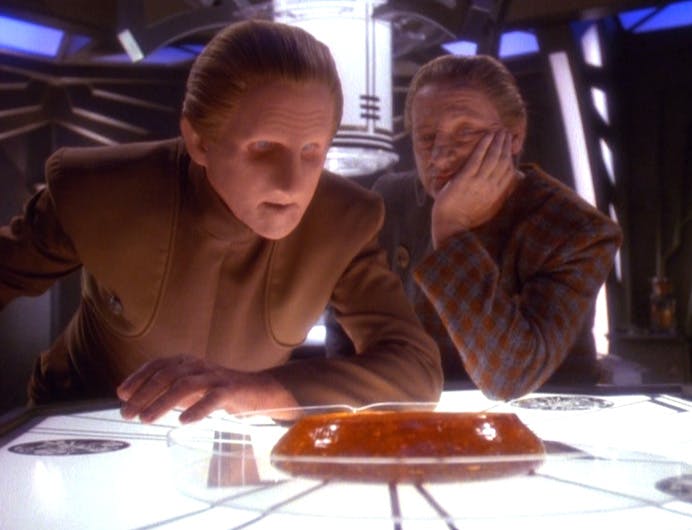
StarTrek.com
And so Odo, when given the chance, made his parenting choices almost out of spite. Sometimes being a father means putting into action the words, “Oh, I’ll show you.” In doing so, Odo overcorrected the sins of his father and cradled his child like an egg, terrified to do anything which would cause it any discomfort or pain, terrified to be anything like the man who raised him.
Only once Odo did what Data did, and allowed the child to come under strain and experience difficulty did the child grow and respond. But because of the lessons Odo had learned, he reacted with empathy and understanding. He guided the Changeling infant through the challenges it faced even as he was the one subjecting it to those challenges. Through this, Odo also came to an understanding of Dr. Mora because it is not until you are a parent that you can truly begin to understand your own parents. And through Odo’s journey, Dr. Mora came to understand his son like he never had before. Fatherhood is a constant evolution, rippling forward and backward through generations.
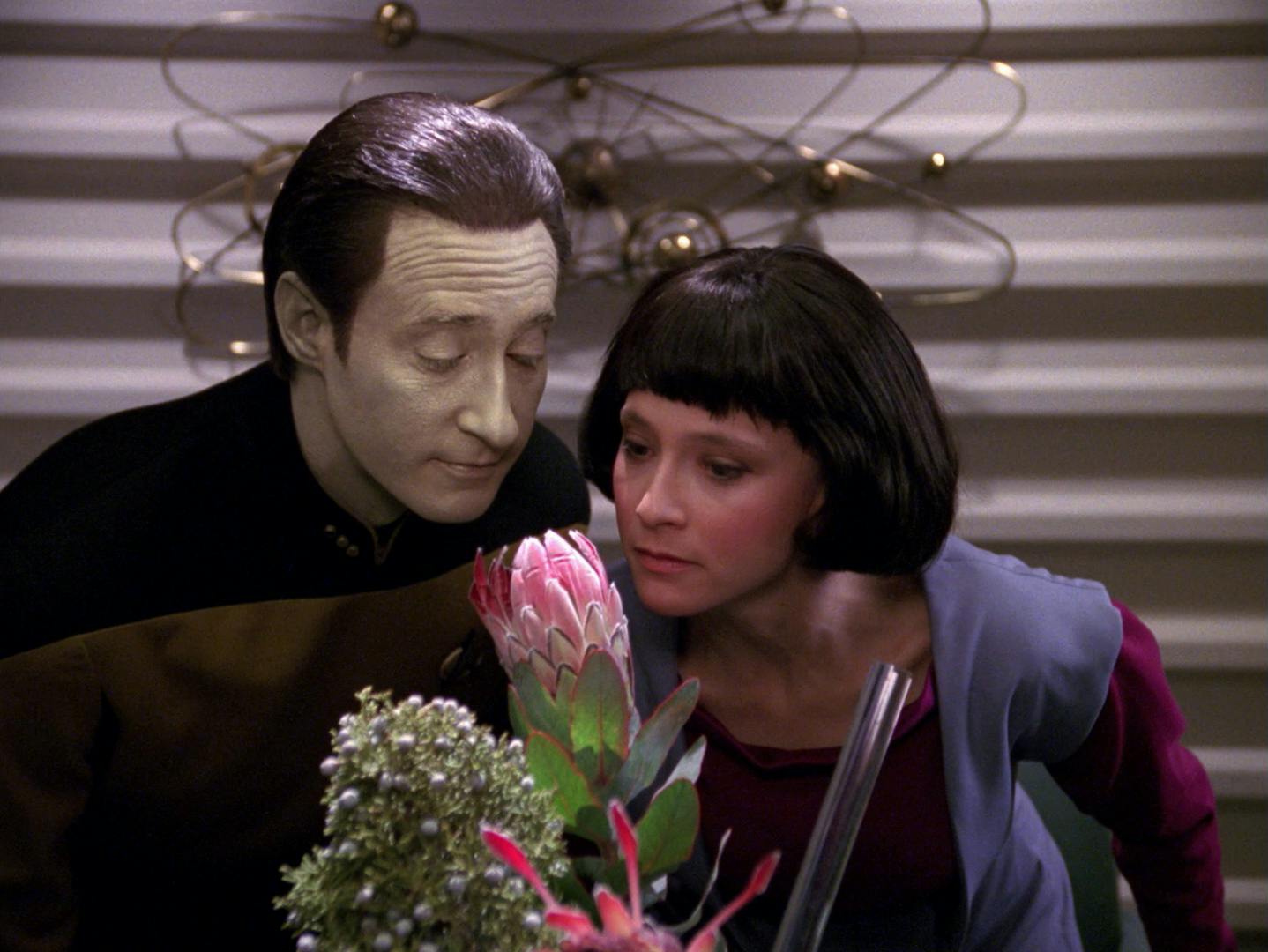
StarTrek.com
As their children begin to grow, both Data and Odo see their hopes and dreams for their children expand. Data understands his limitations — his lack of emotion and, on a more surface level, his inability to use contractions. While he never states his intention to make Lal better than he is, he does strive to help her understand that she can be the best person she could be. When Lal asks Data what their function is, he responds, “To contribute in a positive way to the world in which we live.” Much like Odo wants to be a better father than his was, Data wants Lal to understand she exists to make the world better. Macro and micro goals which both equal out to the same thing.
Lal uses a contraction for the first time, and Data realizes that his child has capabilities which far exceed his own. While this is never explored in the episode, it can be assumed that, at some point, Data would have to wrestle with the fact that there will come a time when Lal will experience things Data can no longer explain to her. What is a father to do when he no longer understands the world as his child sees it? The only thing a father can ever do — love the child unconditionally and be there for whatever the child needs.

StarTrek.com
Odo also glimpses this future, and in fact, it’s part of his stated goal from the very moment he learns of the baby Changeling. “You can be anything,” Odo says, a cliché all fathers say (and believe), but carrying with it a delightful double meaning for this infant shapeshifter. Odo tells his child that he can’t wait to teach it to change into all sorts of wonderful things, like a Tarkalean hawk, while admitting that he was never very good at shapeshifting. He knows that he can teach his child to exceed his own abilities, and, in fact, relishes the idea.
Data and Odo both also experience one of the most rewarding and unexpected joys of fatherhood; something you never really think about until it happens. For Data, it occurs when Lal understands the purpose of holding hands and, on her own, makes the choice to take Data’s hand in her own. For Odo, it's when the infant Changeling rises up and mimics Odo’s own face back to him. For both characters, these silent gestures mean one thing — “I love you, father.” And the first time your child tells you they love you unbidden, it is one of the most special moments in a parent’s life.
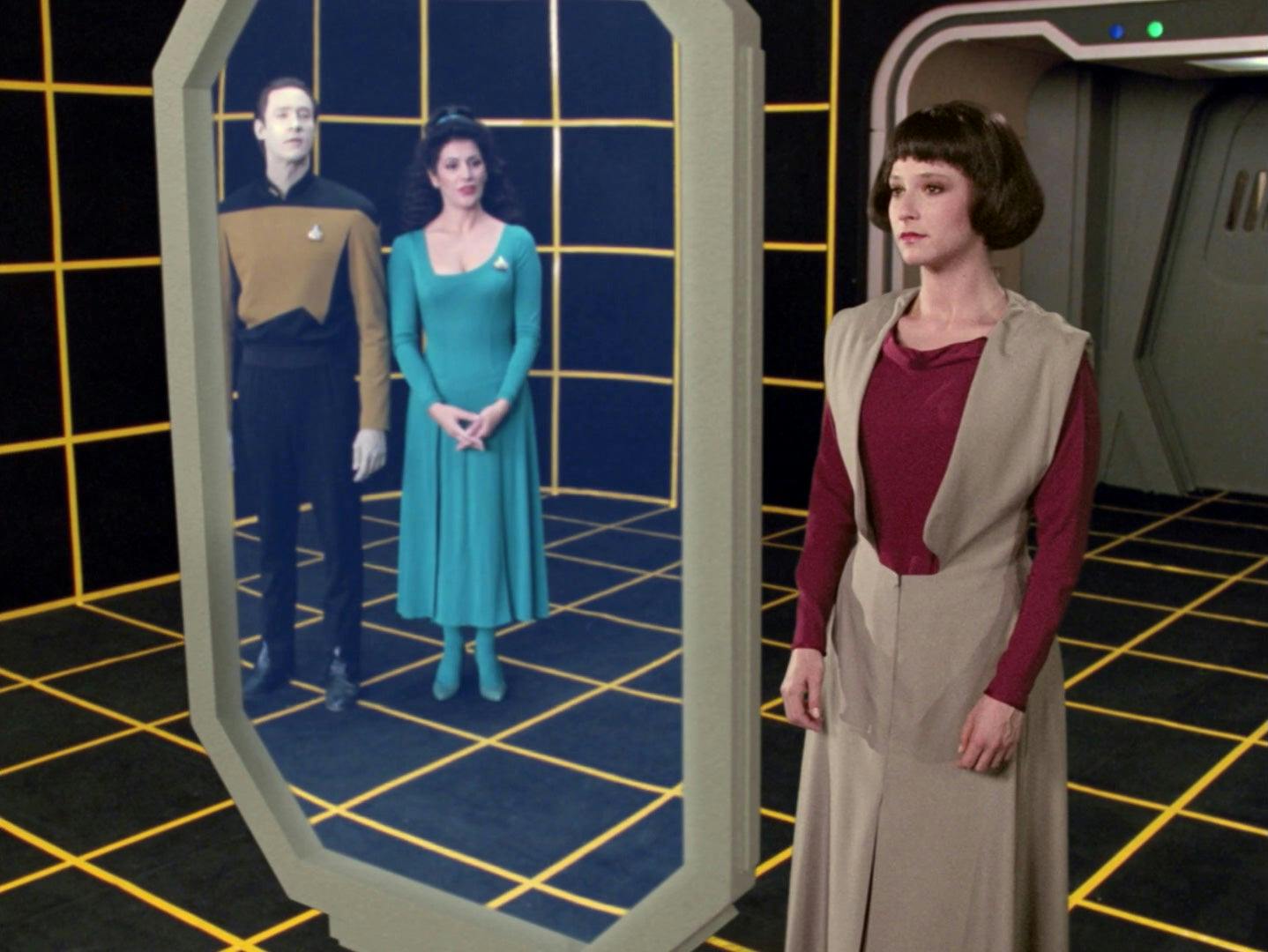
StarTrek.com
There is one more thing that Data grasps about being a parent innately that cannot be left unstated as too many parents in this present day do not understand it. Data understands that he will accept and care for Lal no matter what gender or appearance she chooses. He gives her that choice freely, and if she were to choose to change it later, we understand that he would accept that as well and care for them just the same. This is not a discussion Odo must have because he, by nature, understands the fluidity of his child’s person. Star Trek, it seems, will forever reach across decades and speak to discussions happening today.
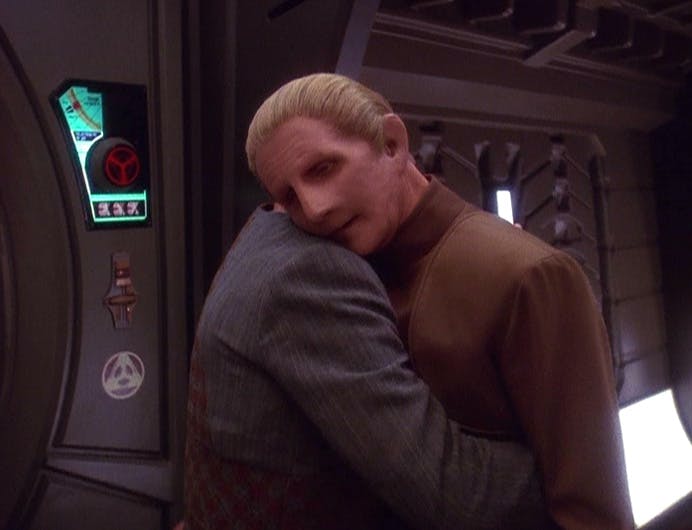
StarTrek.com
Both fathers, in the end, must also experience the worst thing a parent can go through. But rather than focus on that, we can focus on the final lesson both learn. That through our children, we understand the world. That what they experience — how they live, learn, and grow — can teach us to be better ourselves. Through the experience of fatherhood, brief though it is for both Data and Odo, they are forever changed for the better. We can all hope that we teach our children to be better than we are, and they, in turn, teach us to be better than we thought we ever could be.





